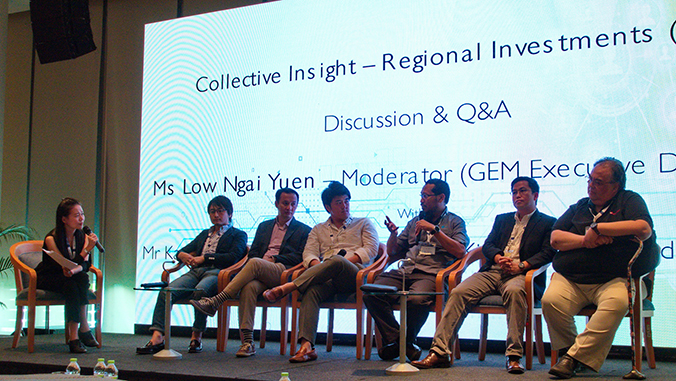Southeast Asia the new hotbed for investments
By Chong Jinn Xiung August 3, 2018
- Time for SEA to shine as VCs from mature markets zoom in
- Reverse flow of talent back to SEA as populism in the West flourishes

WHAT makes Southeast Asia a hotbed for investments? All the six nations that make up the region have a relatively young population, a growing middle class, high smartphone penetration and good disposable income.
These factors combined are some of the key attractions for private equity and venture capitalists who are flocking to the region as mature markets in the West get exhausted and are running out of ideas.
This was among the findings in a panel discussion organised by Malaysian Venture Capital Association (MVCA) during their Southeast Asia Venture Capital and Private Equity Conference 2018. The six-person panel was moderated by Global Entrepreneurship Movement (GEM) executive director Low Ngai Yuen.
Monk’s Hill Venture partner Ridzwan Nordin makes the case that countries like Singapore have become a destination for funding and fundraising.
This is due to the fact that the funding system is robust with a spectrum of investors across stages and verticals. It also helps that most funds and financial services sectors have a headquarters in Singapore.
Other attractions to the island nation are that the government has a big focus on deep technology, biotech and Artificial Intelligence while there is a diversity of startups ranging from fintech, crypto, education technology and enterprise software-as-a-service.
An interesting observation by Venturra Capital’s investment manager Kasper Hidayat is that Indonesia has reached an inflexion point from 2012 to 2013 where physical retail growth has flattened. Now Internet businesses such as Lazada, GoJek, Tokopedia and many others, are driving growth and consumption.
The same was observed by KK Fund founder and partner Koichi Saito who found that startup investments in Thailand have grown 50 times since 2012. The biggest disclosed funding was a US$65 million Series B round by e-commerce enabler aCommerce in 2017.
He also noted that Chinese giants like Alibaba Group, Tencent and JD.com are all setting up operations in Thailand and vying for control in different business segments.
“With all these major players coming into Thailand setting up companies it is a great chance for local startups to be acquired by them,” he said.
Similarly in Vietnam, Captii Ventures executive director Ng Sai Kit found that the country has progressed to be a digital and electrical exporter, the second largest outside of China. “South Korean companies are aggressively vested into Vietnam for manufacturing. In fact, 50% of Samsung’s Galaxy S9 smartphones are produced in Vietnam,” he said.
But don’t rule Malaysia out of the game. Malaysia Technology Development Corporation (MTDC) senior vice president of technology ventures fund Idjarmizuan Ibrahim said MTDC’s focus has been on helping commercialise technology ideas from universities into the market.
“We have 80 tech startups from local universities and we want to help graduates as much as we can. One way is by conducting courses on entrepreneurship in the hopes of turning them into technopreneurs,” he said.
MTDC currently has five technology incubators within five local universities, with four located in Selangor and the fifth in Johor.
To him, MTDC’s mantra is to develop, nurture and accelerate worthy startups with the objective of growing targeted companies to reach RM100 million in revenue by 2020.
Trump is good for Southeast Asia
During the closing minutes of the panel, Low asked the panellists what the future of investments in Southeast Asia holds.
Captii Venture’s Ng believes that there will definitely be more unicorns entering the space from either China or the United States.
Meanwhile, Venturra Capital’s Kasper believes that advancements in Artificial Intelligence (AI) will enable companies without deep tech expertise to build apps in the region. This would then transform Indonesia’s agriculture and manufacturing sector.
Finally, Monk’s Hill Venture’s Ridzwan is of the belief that US President Donald Trump has a positive effect on the region. With the rise of populism in the West, this has tightened immigration in those countries.
This would have a knock-on effect by pushing talent back to Southeast Asia as students graduating from the West would have to return to their home countries to find new opportunities. Hopefully, this would result in more companies and tech startups being created in the region.
Related Stories:
Gobi receives 2 awards from Malaysia Venture Capital Association
Guiding startups through company valuation and fundraising
Golden Equator Capital, Korea Investment Partners launch US$87mil Co-GP Venture Fund
For more technology news and the latest updates, follow us on Facebook, Twitter or LinkedIn


